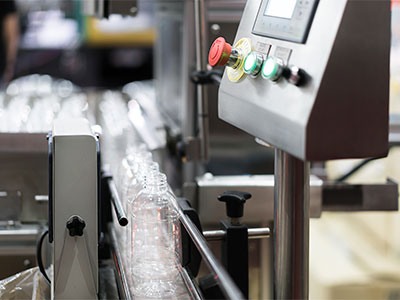Food Safety Audits

ISO 22000

ISO 22000
ISO 22000 is the global standard of the food safety management system applicable to the entire food supply chain.
It extends to suppliers of non-food products and services, such as equipment and cleaning manufacturers, and can be used by organizations of any size.
ISO 22000 specifies the requirements for a food safety management system that involves communication, system management and prerequisite programs. It focuses on the principles of the HACCP of the Codex Alimentarius.
BENEFITS
- Transparency demonstrated in the supply chain
- Continuous improvement of food production processes
- Opening to international markets with acceptance of ISO 22000
- Trust generated for customers and consumers
- Management of effective costs due to unification of programs and criteria

FSSC 22000

FSSC 22000
Audit based on the FSSC 22000 international scheme. This being a complete certification system based on the ISO 22000: 2018 standard, the global standard of the food safety management system and the combination with one of the sector-specific technical specifications for the prerequisite programs (ISO 22002-1: 2009). FSSC 22000 has been recognized by the Global Initiative for Food Safety.
This scheme is designed to promote international harmonization and transparency of food safety standards.
BENEFITS
- It offers the business a solid safety management framework that can be combined with ISO 9001.
- An effective process in the continuous improvement of the entire supply chain
- Communication and Transparency with external agents such as regulatory agencies or clients
- Clear opening to other international markets
- A Certification is obtained under an independent international standard

SQF

SQF
SQFI has created a solution for small and medium-sized food suppliers that do not have a solid food safety management program or who wish to take their existing program to the next level.
Built as a gradual approach, the SQF Fundamentals Program is designed to help you integrate strong food safety standards into your existing practices, while creating a way to achieve the globally accepted GFSI certification.
SQF food safety program
The SQF Family Food Safety Code is a globally accepted food safety standard approved by GFSI.
The SQF Food Safety Codes provide sites with a HACCP-based approach to ensure that their products comply with almost all regulations.
Companies seeking to meet the GFSI certification requirements of their retailers and buyers should learn more about the SQF Food Safety Program.
BENEFITS
- Demonstrate to society the commitment of the organization to food security.
- Increase confidence in their food safety systems and procedures.
- Global recognition of the organization.

GMP’s

GOOD MANUFACTURING PRACTICES (GMP’s)
Good Manufacturing Practices are the foundation of any system or program related to food safety in the industry, food services and distribution chains.
Made up of basic programs such as personal hygiene, maintenance, sanitary design, integrated pest management, storage, cleaning and sanitation, among others, it leads the industry to comply with local and international regulations.
Our audit program is based on a combination of the most robust and solid criteria established by the regulation of the European, American and local union in your country.
BENEFITS
- Demonstrate compliance with the basic programs that make up Good Manufacturing Practices.
- Adequacy to build a food safety program such as HACCP or FDA Food Safety Plan

HACCP

HACCP – ANALYSIS OF HAZARDS AND CRITICAL CONTROL POINTS
Our Audit based on the HACCP System provides an adaptation under an internationally recognized structured operating method that helps organizations in the food and beverage industry to identify their food safety hazards, prevent food safety risks and address legal compliance.
The HACCP is mandatory in several countries, including the United States, the EU, and countries like Mexico is only referenced in Standard, however, when it becomes formally implemented by the factory, then it becomes a mandatory requirement.
The Codex Alimentarius Commission has adopted the principles and reference in its text.
BENEFITS
- Help the factory adopt a Safety System with a Preventive approach
- Common language on the present dangers
- Better communication and path to certification under a global market scheme

INGREDIENTS ALLERGEN MANAGEMENT

INGREDIENTS ALLERGEN MANAGEMENT
Audit based on the American federal regulation FALCPA through FDA and the European Union for the management of allergenic ingredients. Current regulations require that all added ingredients be declared on the label, however, there are a number of issues that have arisen in relation to undeclared allergens that are not clearly covered by the label regulations.
However, our audit will focus on key aspects such as; Products that contain one or more allergens, products that become contaminated with allergens due to bad operational practices, due to the nature of the process, hidden allergens.
BENEFITS
- Adaptation to international regulation to export product to the United States or Europe
- Harmonization in the criteria for the management of allergenic ingredients
- Technical knowledge about the correct labeling

LOW ACID | ACIDIFIED FOODS

THERMAL PROCESS
Our auditors approved under the FDA standardized curriculum are responsible for audits that ensure the minimum criteria of program design and operations for the thermal treatment of canned food products, glass or “Pouch” thermal bags.
The following aspects are taken into account: (Records of equipment validation, training and certification of employees, operational practices, documentation and compliance with records, online evaluation of packaging and double closure, finished product, monitoring frequency).
Reach for low acid or acidified product lines and aseptic packaging.
BENEFITS
- Adaptation to international regulation to export product to the United States or Europe
- Harmonization in the criteria for handling thermal processes
- Correct technical knowledge of sterilization or pasteurization processes

FOOD DEFENSE

FOOD DEFENSE
Our PAS 96-based audit that aims to review the current state in the food industry about the approach implemented and procedures to improve the ability to protect the supply chain from some form of attack or adulteration to the product intentionally.
PAS 96 describes the Threat Analysis and Critical Control Point (TACCP), it is a risk management methodology that aligns with the HACCP, but has a different approach that may require contributions from employees of different disciplines, such as human resources, purchases and / or property security.
BENEFITS
- Any process can guarantee that food and food supplies that are NOT subject to criminal activity, but by using PAS 96 may make it less likely.

PREVENTIVE CONTROLS FOR HUMAN FOOD

PREVENTIVE CONTROLS FOR HUMAN CONSUMPTION FOOD
Our audit program allows you to adapt to the regulation of Preventive Controls for Foods for Human Consumption under the Federal Code of Regulations title 21 part 117, when your overseas supplier is identified as a required control within the supply chain.
The FSMA precertification audit is designed to verify the adequacy or compliance of the Preventive Controls program for companies that produce food for human consumption and export to the United States. They are designed to ensure compliance with current Good Manufacturing Practices (cGMP), Hazard Analysis, Food Safety Plan, its determined Preventive Controls and its monitoring system through its records.
Our Qualified Auditors and also Qualified Individuals in Preventive Controls will ensure during the tour and the review of programs, the correct adaptation and compliance of the program established under the FSMA Law.
BENEFITS
- The contract advantage brings the conduct of the audit and support to your provider throughout the cycle of closing critical nonconformities.

CLIENT POLICIES

BASED ON INTERNAL POLICIES OF OUR CLIENT
Our client can contract audits under its internal Food Safety and Quality Policies that reach even its suppliers of raw materials and packaging material.
For this, our team of auditors is coupled with these internal requirements to develop audits, as well as the criteria for approval in accordance with the specifications.
We rely exclusively on a checklist provided by our client to audit their suppliers.
BENEFITS
- The supplier gets a better understanding of the manufacturer’s internal Policies, since our audits are in educational and adaptation modality.



